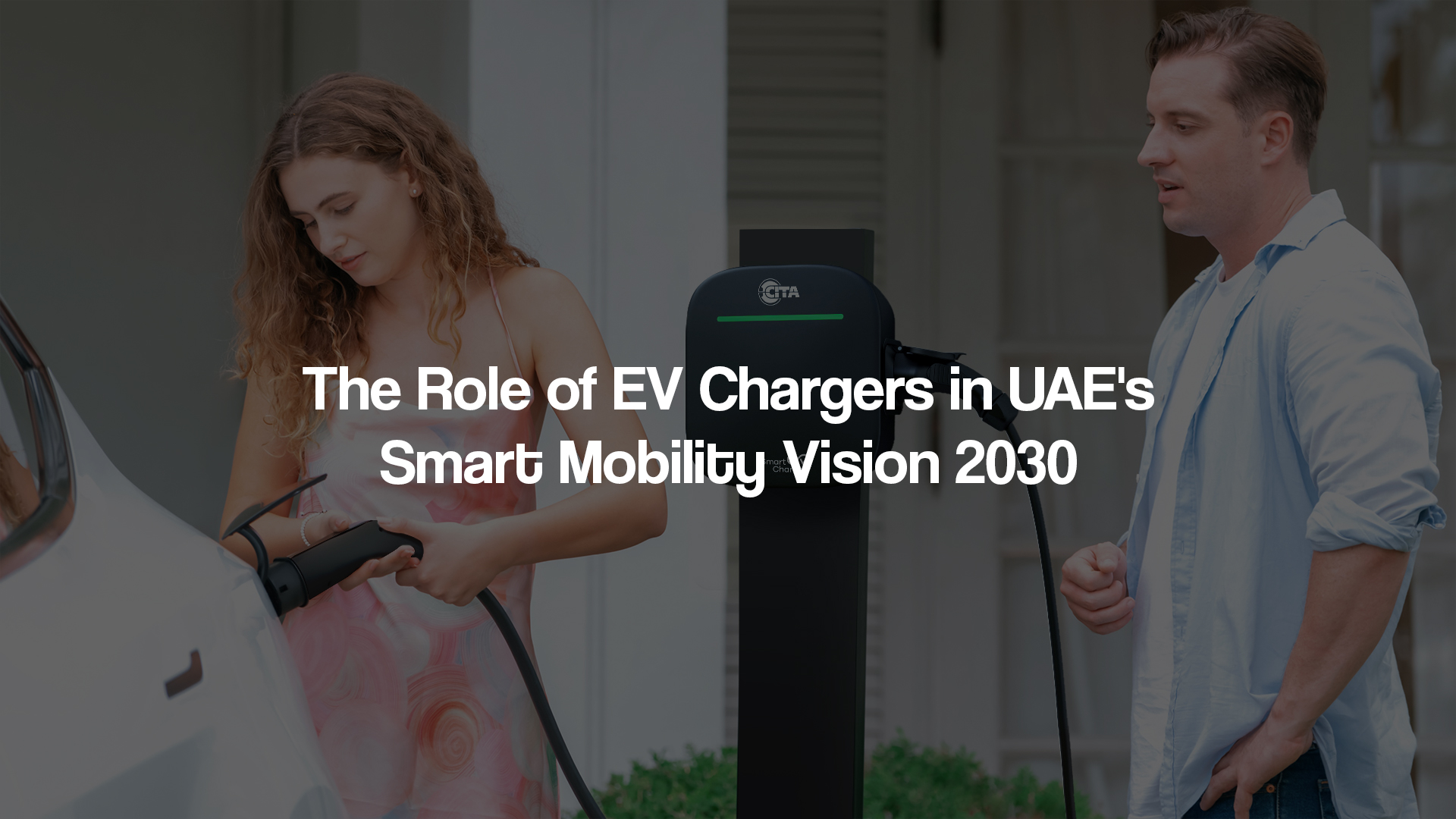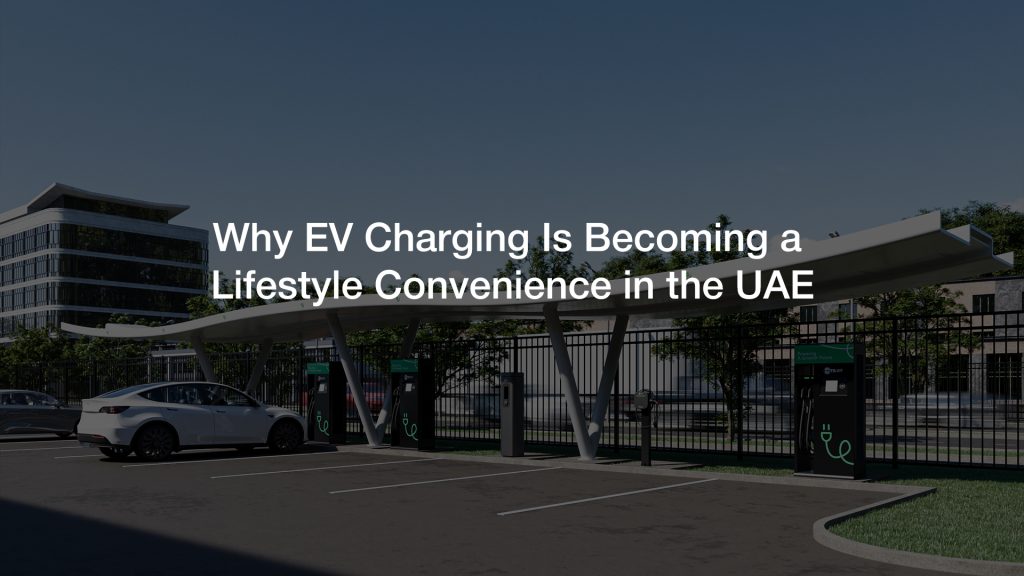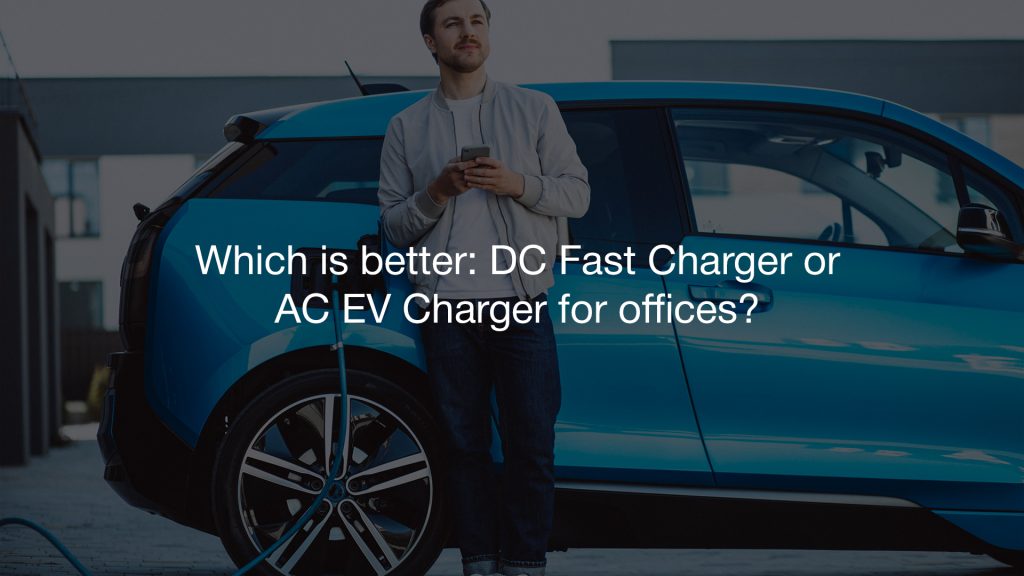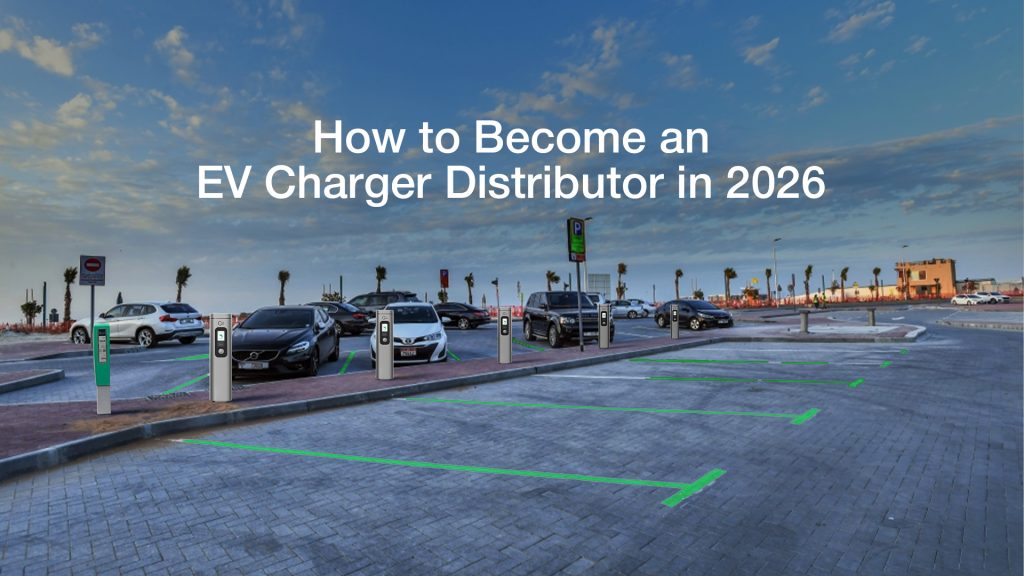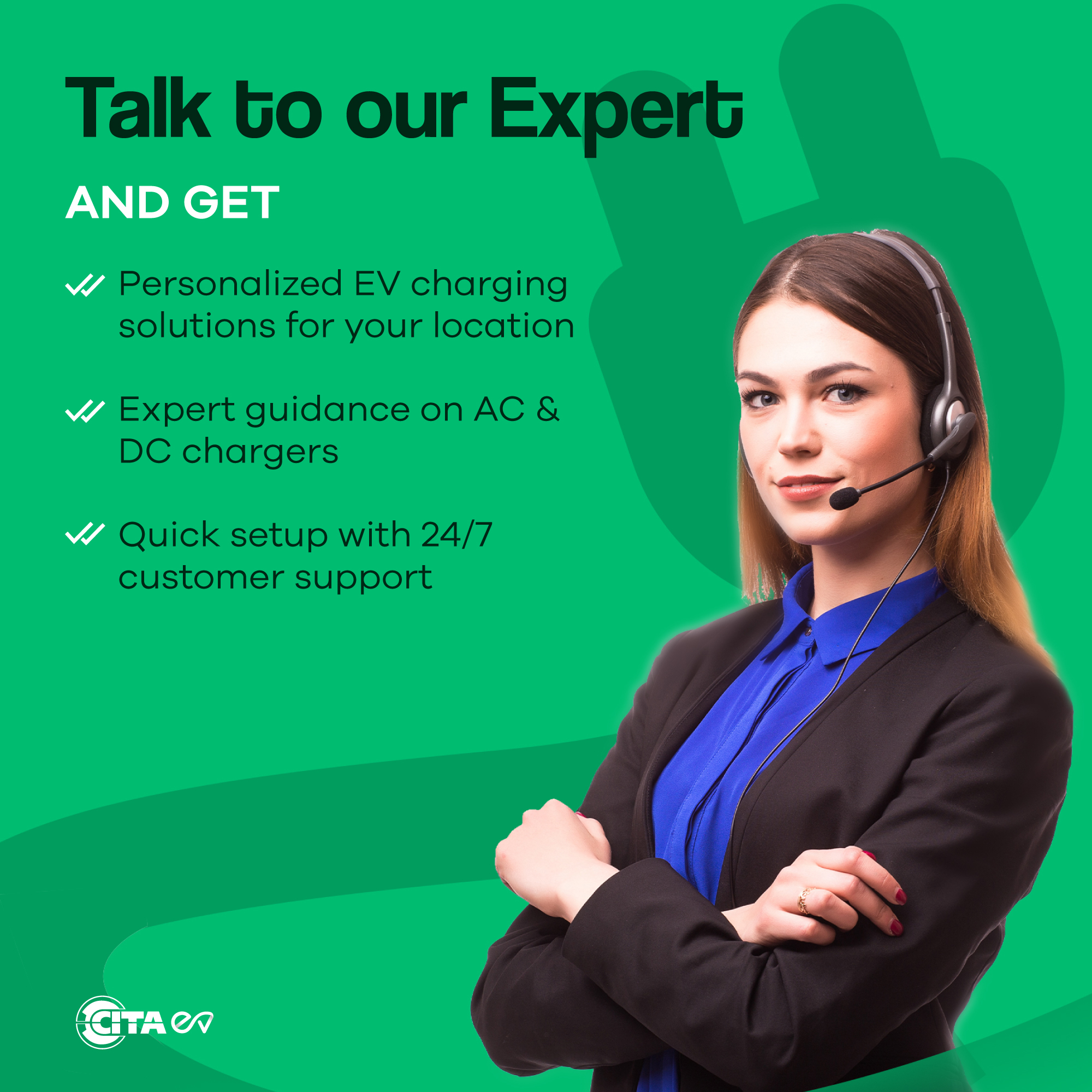In a world rapidly moving towards sustainability, EV chargers in UAE are powering the nation’s bold Smart Mobility Vision 2030. As part of this transformative vision, the country aims to have 42,000 electric vehicles on the roads by 2030, reduce carbon emissions by 70%, and transform 25% of total mobility into autonomous or electric-powered systems – all while enhancing infrastructure, public awareness, and policy frameworks.
The demand for smart, connected, and sustainable transportation is shaping the future of our cities and homes. With our desert landscape adapting into a future-ready, electrified environment, EV chargers in UAE are taking centre stage. In this blog, we break down how this core infrastructure is propelling the nation toward a cleaner, smarter tomorrow.
How EV Chargers Empower UAE’s Smart Mobility Vision 2030
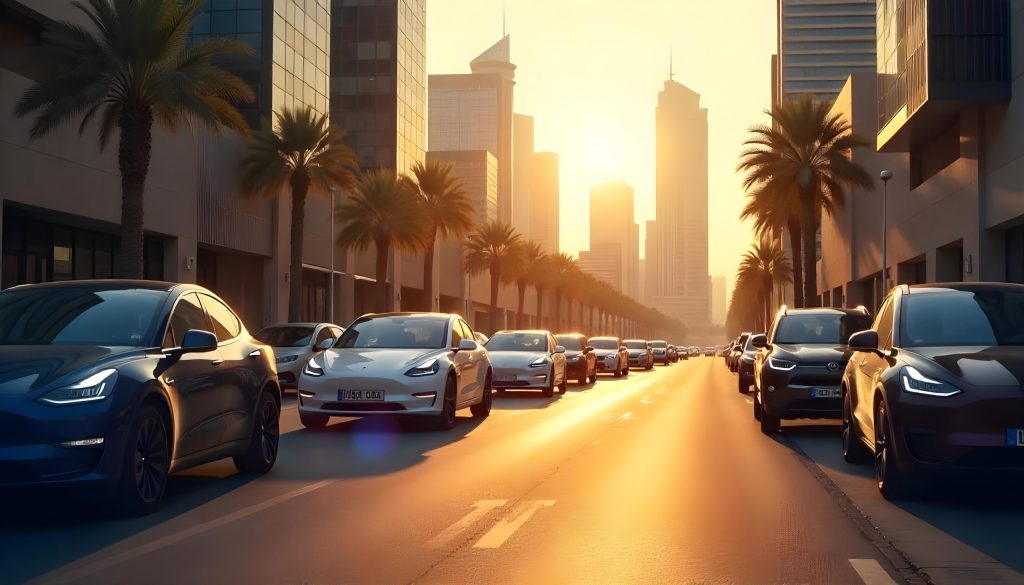
As electric vehicles gain momentum in the UAE, a robust EV charging infrastructure is emerging as a vital enabler of clean transport. From homes to highways, EV chargers in UAE are reshaping mobility, driving innovation, and supporting national sustainability goals across both residential and commercial sectors.
1) A Key Pillar of Sustainable Urban Transport
At the heart of smart mobility lies electrification, and at the heart of that lies the charging network. Without a robust and accessible ecosystem of EV chargers in UAE, the transition to electric mobility would falter. These charging stations aren’t just convenience outlets; they are foundational to reducing dependency on fossil fuels and ensuring smooth EV adoption in both public and private sectors.
Our cities are evolving into smart, interconnected hubs. The integration of smart EV chargers with urban planning ensures real-time data tracking, efficient load management, and predictive maintenance. It’s about turning mobility into an ecosystem—and EV charging is the power source of that ecosystem.
2) Home Charging: Convenience Meets Clean Energy
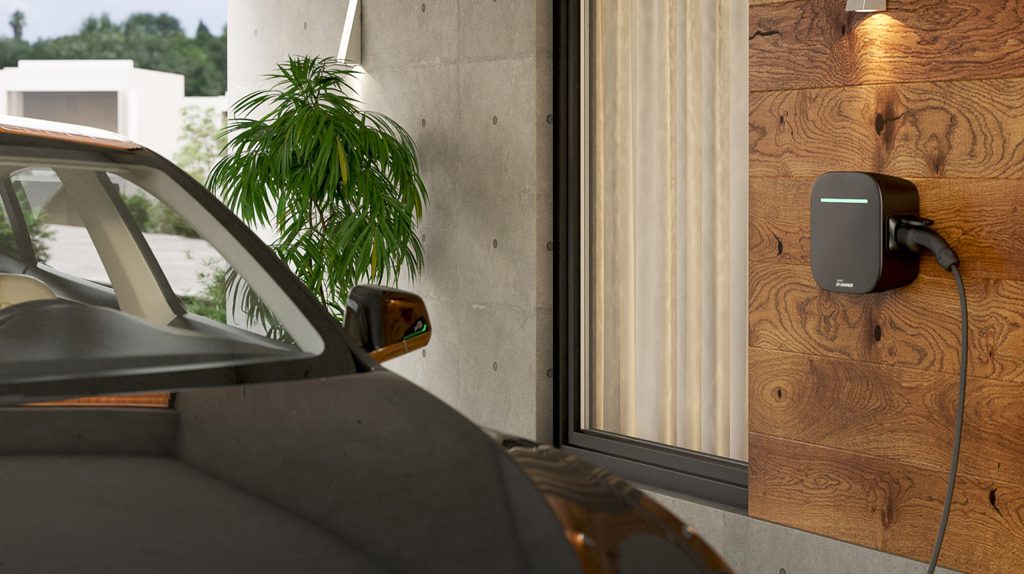
Imagine returning to your villa and plugging in your EV just like your phone. That’s the level of comfort enabled by modern home EV chargers across UAE. These solutions are empowering residents to embrace clean transport without relying on public stations.
With villa communities and residential zones growing rapidly, there’s a visible increase in demand for residential EV chargers, especially AC EV chargers that are compact, weather-resistant, and ideal for overnight charging. Whether it’s a 7 kW or 22 kW unit, users now enjoy smart integrations like app control, scheduling, and usage analytics, making EV chargers in UAE part of daily life with minimal effort.
3) Public and Commercial Charging Infrastructure is Scaling Fast
To meet national sustainability goals, cities like Dubai and Abu Dhabi are significantly expanding their public charging infrastructure. Hundreds of fast EV chargers are being installed across malls, hotels, parks, and highways, making EV ownership more convenient than ever.
Commercial buildings are also stepping in, recognizing the importance of offering EV charging as a value-added service. From business parks to hospitality venues, having a reliable commercial EV charger on-site not only supports green mobility but also enhances customer experience. Many of these stations now feature DC EV chargers with ultra-fast capabilities, reducing wait times to under 30 minutes.
4) Enabling Seamless Mobility with Real-Time Charging Networks
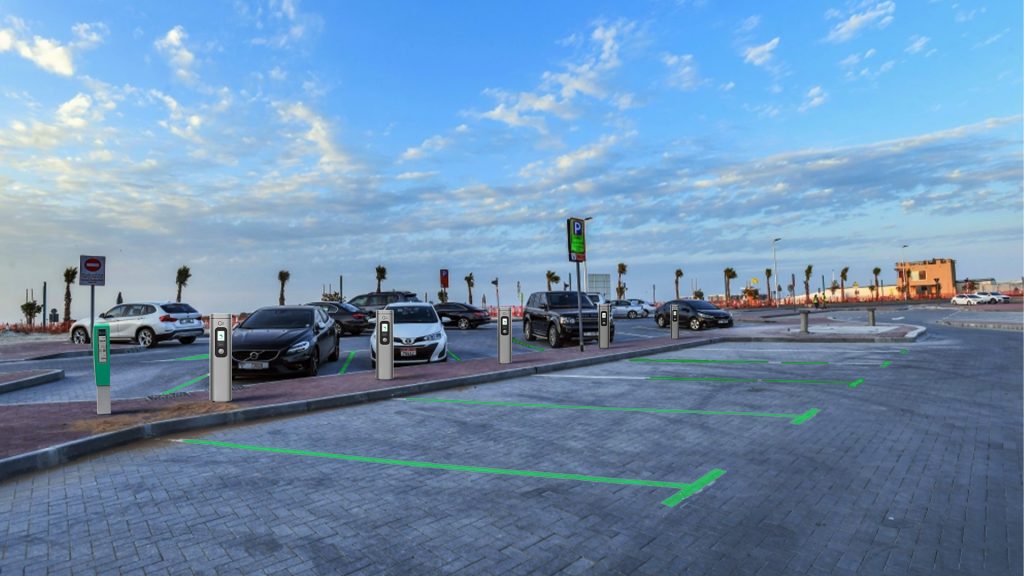
A key pillar of the UAE’s evolving transport infrastructure is the development of real-time, interconnected EV charging networks. These systems go beyond simple EV charger maps—they offer live data on charger availability, wait times, energy pricing, and optimal routing for EV users. By combining AI-driven analytics with cloud-based platforms, these networks help prevent congestion at charging stations and allow for predictive maintenance.
For EV drivers, it means greater convenience and time savings; for operators, it ensures efficiency and scalability. Such real-time connectivity is transforming EV chargers into proactive enablers of smart mobility across the UAE.
5) Fast Chargers and Urban Mobility Hubs
Electric taxis, ride-hailing services, and urban delivery fleets need rapid turnaround, and that’s where fast EV chargers come into play. These chargers are now a critical feature at mobility hubs across UAE cities, especially in areas with high commercial activity.
Modern hubs are equipped with chargers offering dual connectors (such as 44 kW dual AC or up to 360kW DC) to support multiple vehicles simultaneously. Route planning tools and energy usage analytics enhance operational efficiency. These urban centres are setting the tone for what e-mobility looks like in the fast-paced environments of tomorrow.
6) Supporting the Rise of Electric Fleets
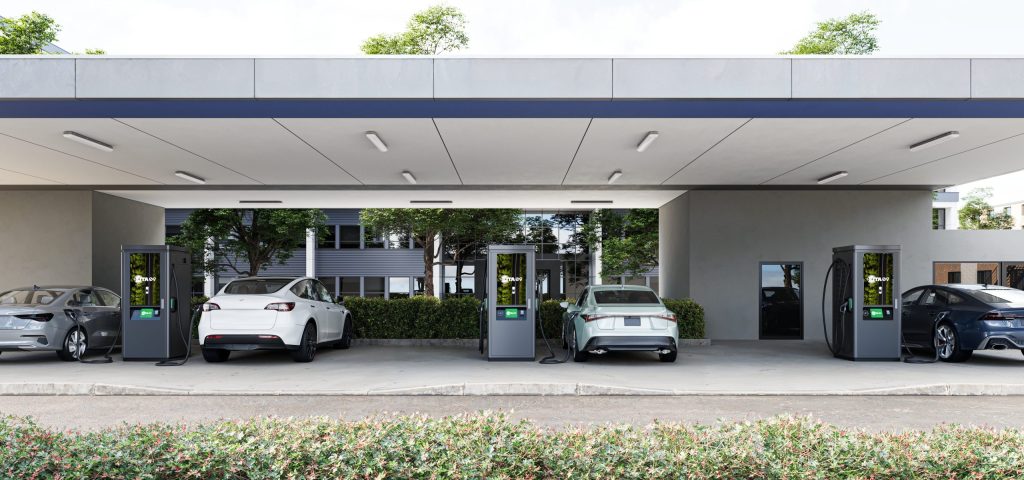
The shift toward electric fleets in logistics, public transport, and private enterprises is reshaping energy demand. EV chargers in UAE are increasingly being tailored to suit the needs of these larger vehicle groups.
Fleet operators now prioritize infrastructure that supports simultaneous charging for multiple vehicles, centralized monitoring, and intelligent load balancing. Features such as smart scheduling during off-peak hours and data analytics allow better cost control and operational planning. Whether powered by AC EV chargers or DC fast chargers, fleet operations are becoming cleaner and more efficient.
7) Villa Owners Lead the Green Charge
Among early adopters, villa owners are some of the most enthusiastic users of electric vehicles. Their shift to sustainable transport is driving the demand for smart and elegant residential EV chargers.
These homeowners are seeking chargers that combine functionality with design—weather-resistant units rated IP65 and IK10 are particularly popular. Integration with home automation systems, mobile app control, and support for dynamic tariffs are also key features. In today’s upscale residences, EV chargers in UAE are no longer optional—they’re a mark of modern living.
8) Government Backing and Incentives Power Growth

The UAE government has played a decisive role in supporting electric mobility. Through regulatory authorities like DEWA and ADQCC, EV chargers in the UAE are subject to strict testing and certification to ensure they meet performance, safety, and sustainability benchmarks.
To boost adoption, a variety of incentives have been rolled out, including free public charging, EV-specific parking spots, zero customs duties on EVs, and discounted registration. Moreover, new developments are now required to be EV-ready. These proactive policies are key to building a nationwide EV charging infrastructure that is robust, accessible, and future-proof.
9) Future-Proofing with Scalable Charging Technology
With EV battery technology evolving rapidly, the EV charging infrastructure must also be designed for scale and longevity. Many commercial and residential setups across the UAE are now turning to modular charging systems that can be upgraded as needed.
Scalable DC EV chargers—from 60 kW to 360 kW—are already enabling faster charging for new-generation EVs. These systems also support software updates, flexible power configurations, and integration with renewable energy sources. The goal is to ensure that smart EV Chargers in UAE deployed today can evolve with the growing complexity of tomorrow’s electric mobility.
10) The Software Advantage: Charging Smarter, Not Just Faster
Today’s EV ecosystem is just as much about software as it is about hardware. Most EV chargers in UAE now come bundled with intelligent platforms that provide real-time data on energy usage, billing, and scheduling.
With the help of mobile apps and cloud-based Charge Point Management Systems (CPMS), users can track their session history, customize charging times based on tariffs, and manage access permissions in shared environments. These tools not only optimize energy use but also empower users to charge smarter—making the experience seamless, transparent, and aligned with smart living.
Ready to Power UAE's Vision? Let’s Build the Future Together
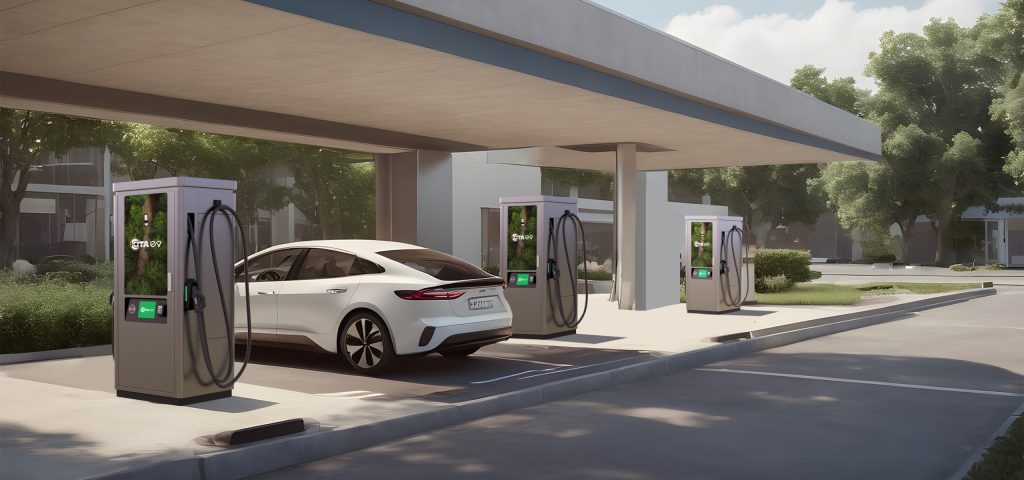
As we race toward UAE’s Smart Mobility Vision 2030, the role of EV Chargers in UAE becomes clearer and more crucial every day. From enabling seamless urban mobility to empowering sustainable living in villas, EV chargers are doing more than just powering cars—they’re powering change.
At CITA EV Charger, we are proud to be at the forefront of this evolution. With trusted certifications from DEWA and ADQCC, a growing presence in over 35+ countries, and unmatched 24×7 support, our AC and DC EV charging solutions are built to meet tomorrow’s needs today.
Looking for a residential EV charger manufacturer in Dubai or a full-scale commercial EV charging partner?
Let us help you energize your transition.
Contact us now to explore smart, scalable, and future-ready charging solutions for your home, business, or fleet.



